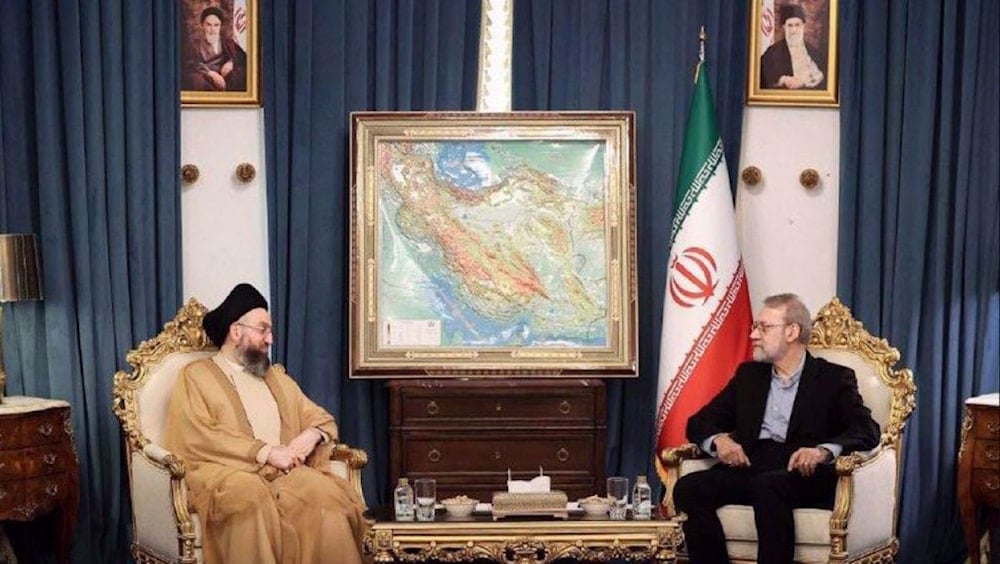Iran, Iraq vow deeper alliance to counter foreign aggression
Iran's Ali Larijani and Iraq's Ammar al-Hakim called for stronger bilateral cooperation after the recent Israeli aggression, framing their partnership as strategic for regional stability.
-

Senior Iraqi Shia cleric and head of the National Wisdom Movement, Sayyed Ammar al-Hakim (L), meets with Secretary of Iran’s Supreme National Security Council, Ali Larijani, in Tehran, Iran, on September 6, 2025. (PressTV)
Iran has renewed its call for deeper cooperation with neighboring Iraq, portraying their partnership as central to defending West Asia from foreign aggression and instability.
During a meeting in Tehran with Sayyed Ammar al-Hakim, leader of Iraq's National Wisdom Movement, Secretary of Iran's Supreme National Security Council Ali Larijani pressed for greater depth in bilateral relations. "In view of the current dynamic status quo, cooperation between Iran and Iraq must become more objective and tangible," he said, adding that Iraq is a "friendly and strong country" and that its partnership with Tehran is "strategic."
Al-Hakim praised Iran's response to the recent war with "Israel," declaring, "The 12-day Israeli military aggression against Iran, contrary to the Zionist entity's calculations, boosted the Islamic Republic's power in West Asia, and Muslims praised Iran's dominant role."
He went on to say, "Nowadays, the Zionist regime's wicked behavior as regards the 'Greater Israel' concept clearly shows that Iran was right to call Israel a cancerous tumor. The entire region has now become sensitive to Israel's adventurism."
Strategic alliance
The talks came shortly after a major escalation that began on June 13, when "Israel" launched strikes on Iranian soil, killing senior commanders, scientists, and civilians. Iran retaliated within a day with missile and drone attacks, expanding its response under the operation True Promise III. The US entered the war on June 22 by bombing three Iranian nuclear facilities, which Tehran denounced as a violation of international law. In turn, Iran struck the Al-Udeid Air Base in Qatar, the largest US base in the region. Facing mounting pressure, "Israel" agreed to a unilateral truce on June 24.
Beyond the latest hostilities, Larijani and al-Hakim reviewed the 2023 Iran-Iraq security agreement, which obligated Baghdad to disarm and relocate pro-US Kurdish groups from the border, a move aimed at preventing cross-border infiltration and stabilizing frontier provinces. They stressed the need to expand such cooperative frameworks to reinforce regional security.
Enduring Partnership
Iran-Iraq ties have evolved significantly over recent decades. Once bitter rivals during the 1980-88 Iran-Iraq War, the two countries drew closer after the 2003 US-led invasion toppled Saddam Hussein. Since then, Tehran has become a central political and military actor in Iraq, backing Resistance parties and supporting Popular Mobilization Forces during the campaign against ISIS.
This deepening influence has often clashed with Washington's presence in Iraq, particularly after the 2020 US strike in Baghdad that killed Iranian commander Qassem Soleimani.
Today, Tehran and Baghdad view their strategic alliance as a shield against Zionist aggression and US destabilization efforts, an alliance that continues to shape a more independent and secure regional order.
Read more: Iraqi Resistance warns against US intrusions, urges protection of PMF

 3 Min Read
3 Min Read










